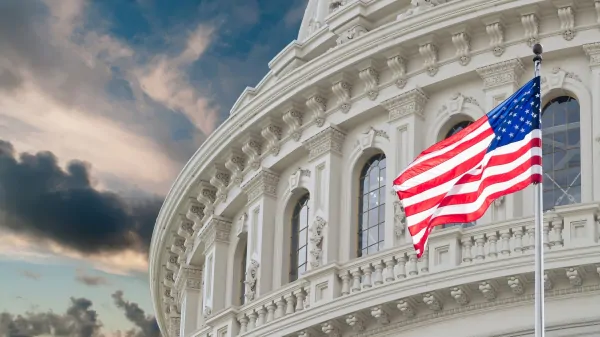The Alabama Legislature gave final approval to Aniah’s Law, a constitutional amendment sponsored by state Rep. Chip Brown, R-Mobile. House Bill 131 allows prosecutors and judges broader discretion in requesting and denying bail to those accused of committing violent crimes.
Since this is a constitutional amendment, it bypasses the governor and will now go on the statewide ballot for ratification by voters in a referendum election.
“Too many of those who are accused of violent crimes are bonding out of jail and committing even more serious offenses, and it is time for law-abiding Alabamians to start fighting back,” Brown said. “Denying bail to those accused of violent offenses is a commonsense answer to a dangerous societal problem; and following three years of hard work that was necessary to pass this amendment through the Legislature, I am confident the citizens of Alabama will vote to ratify it.”
Section 16 of the 1901 Constitution of Alabama currently requires that “all persons shall, before conviction, be bailable by sufficient sureties, except for capital offenses, when the proof is evident or the presumption great; and that excessive bail shall not in any case be required.”
Brown’s measure would amend the state Constitution to allow prosecutors to ask for judges to deny bail to individuals facing violent crime charges who they believe will place the public at risk with their release. The judges are empowered to deny bail if it is determined that the defendant is a danger to the community, a danger to himself or is a flight risk.
The proposed amendment is named after 19-year-old college student Aniah Blanchard. According to prosecutors, Blanchard was killed by Ibraheed Yazeed after he was released on bond for several violent offenses including kidnapping and attempted murder.
Yazeed is currently being held on capital murder charges in Blanchard’s death. Yazeed had been awarded bail despite more than a dozen priors, which included drug and robbery arrests.
Brown also cited the death of Tuscaloosa police officer Dornell Cousette, who was killed in September 2018 by a suspect who was free on bail for robbery and assault charges at the time.
The Alabama Senate passed Aniah’s Law on Tuesday. The Alabama House of Representatives concurred with the Senate amendment, narrowing the crimes for which a judge would be allowed to deny bond. The legislation was carried on the floor of the Alabama Senate by Sen. David Sessions, R-Mobile.
Elijah Blanchard, the father of Aniah, told the Senate Judiciary Committee: “I feel that as a parent this would prevent other parents from going through what we have gone through.”
“This bill would be very instrumental in keeping these criminals locked up,” Blanchard said. “It would give the judges the discretion to deny bail to dangerous criminals. This young man was out there just preying on young women.”
“If this man had been locked up, Aniah would be alive today,” Blanchard said at the public hearing. “If you rape someone, the judge should have the discretion to say that you won’t have bond.”
The Senate passed HB131 on a 30 to 0 vote. The House voted to concur with the Senate 92 to 0. The bill was then forwarded to the Secretary of State’s Office for an upcoming election, likely the 2022 general election. Thursday was day 23 of the 2021 Legislative Session.























































